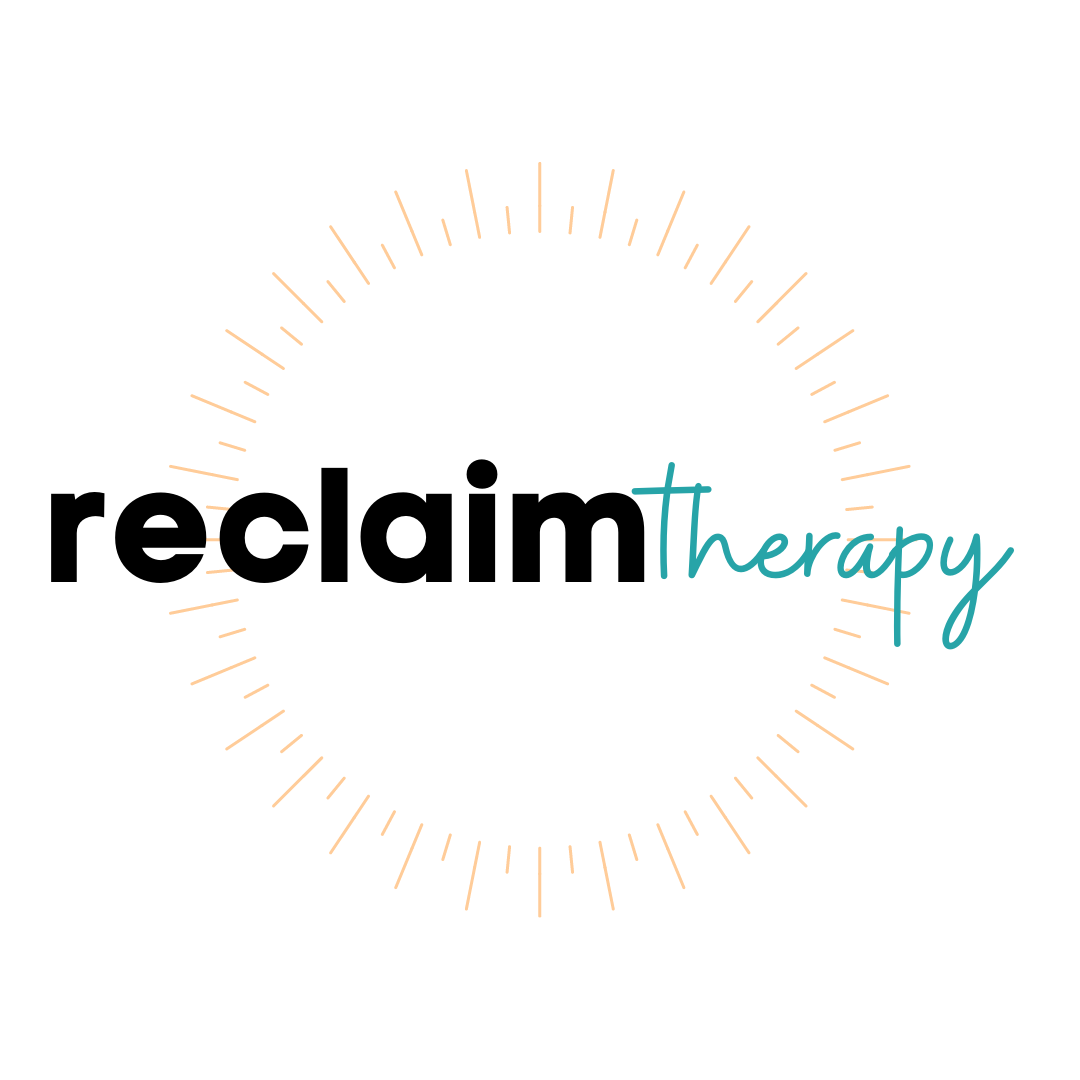
Reclaim You- Strategies to Reclaim You From Diet Culture
Season 1: Episode 4
Welcome back to the Reclaim You podcast with Reclaim Therapy!
We hope this is an unfiltered and uplifting episode that empowers you to rise above the suffocating grip of diet culture. We've been diving deep into the covert ways diet culture infiltrates our lives, but now it's time to ignite the flame of hope inside of you. In this episode, Sarah, alongside Reclaim Therapist, Emily Cinque, lead the charge in reclaiming your life from the clutches of diet culture.
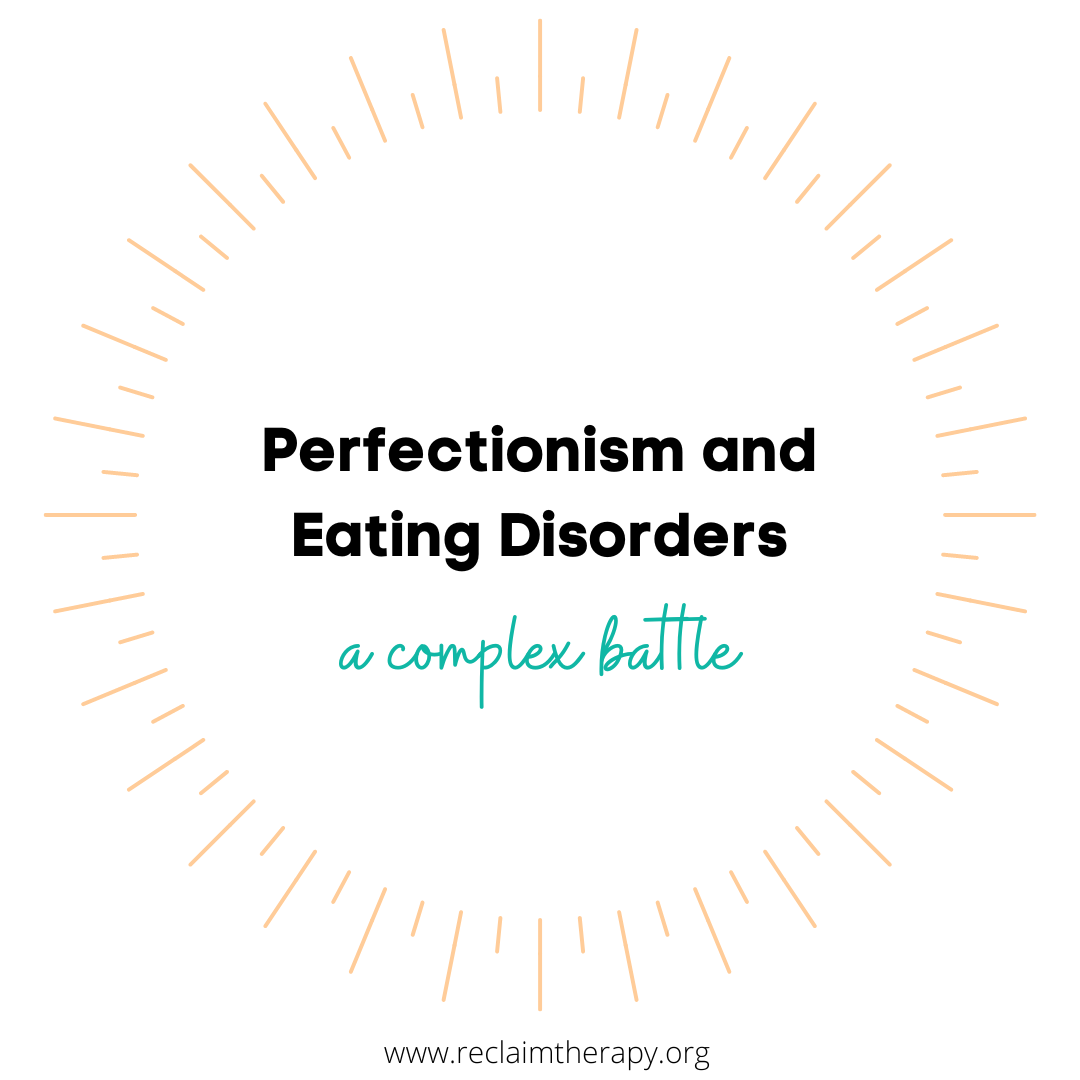
Perfectionism and Eating Disorders: A Complex Battle
For many, the pursuit of perfection has become so routine, that it can be hard to recognize when you’re engaging in perfectionist tendencies and how much it impacts your sense of self and sense of belonging and enoughness in the world.
Whether it’s striving for the thin-ideal, grinding and pushing for achieving or recognition, or pushing to have seemingly unmatched self-control, the pressure to meet society’s, and at times family of origin’s, high standards take a toll and can be overwhelming.

Reclaim You- The Sneaky and Disconnecting Ways of Diet Culture
Season 1: Episode 3
Join us for another episode of the Reclaim You podcast! Today Sarah and Laura delve into the insidious and disconnecting ways in which diet culture infiltrates our lives. Laura guides us through an illuminating discussion on the impact of diet culture on our well-being and how we can start reclaim and turn toward ourselves, while turning away from diet culture.
To kickstart the episode, Laura shares her personal understanding of the phrase "Reclaim You" and its profound significance both in her own life and in her work with clients.
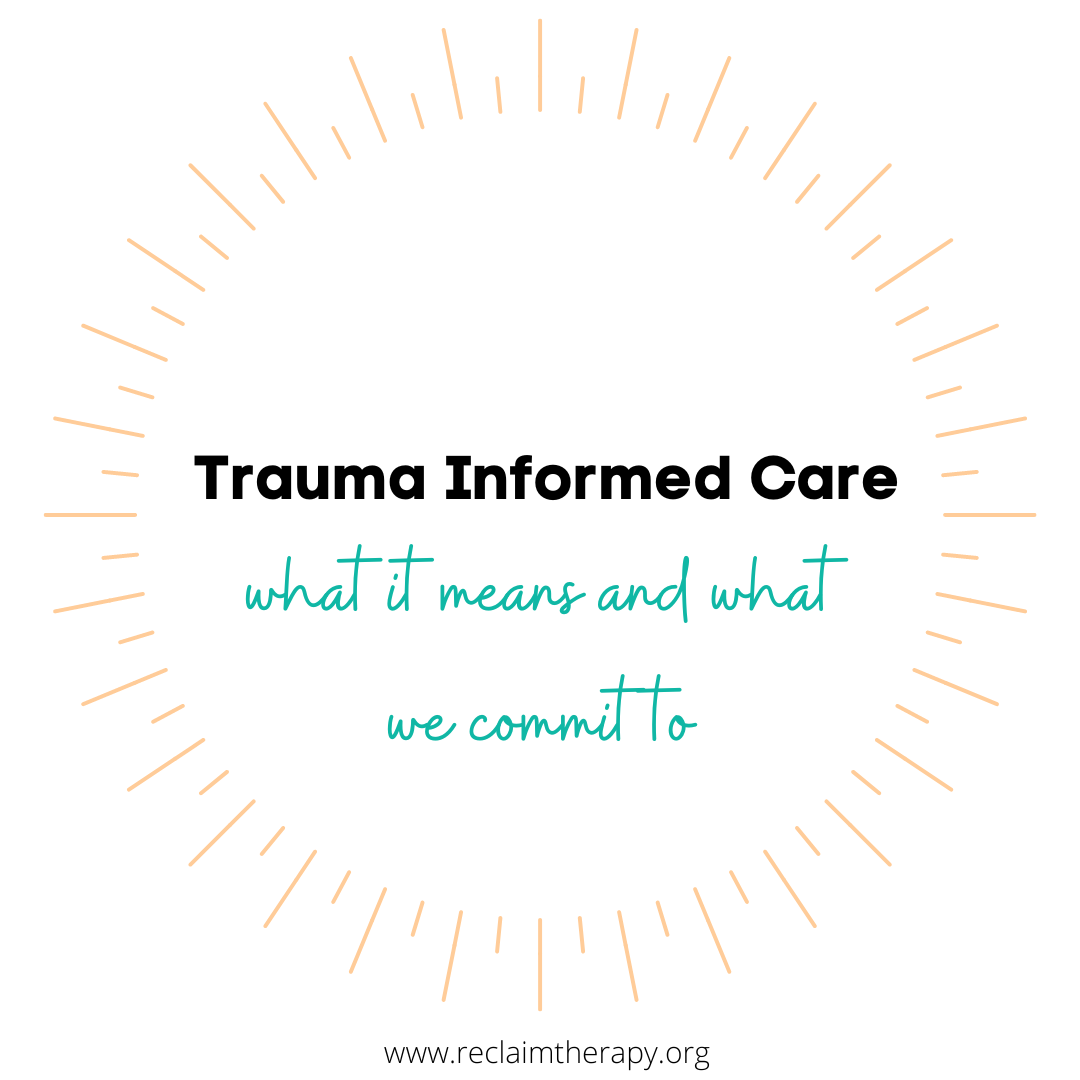
Trauma Informed Therapy in Pennsylvania
Here at Reclaim Therapy, we are a group of eating disorder therapists and trauma specialists in Pennsylvania. As a trauma informed therapy practice, we understand how trauma has an ongoing and living impact on the mental, physical, relational, social, spiritual and emotional realms of the human experience.
We meet our clients with acceptance, curiosity, compassion and a genuine interest in them, and what they have experienced, as humans in the world.
We believe that it is a right for all people to resolve and heal from trauma they have experienced.

Reclaim You- The Impact of Diet Culture
Season 1: Episode 2
On this episode of Reclaim You, eating disorder and body image specialist, Abby Albright, joins Sarah to chat about the impact that diet culture has on our sense of self, body image, how we view health and wellness and how we are able to connect and care for ourselves.
Abby kicks off the show talking about what Reclaim You means to her and what it means in her work with clients. From there, the conversation turns to an exploration of the impact of diet culture on all of us, with Abby sharing what stands out to her the most.
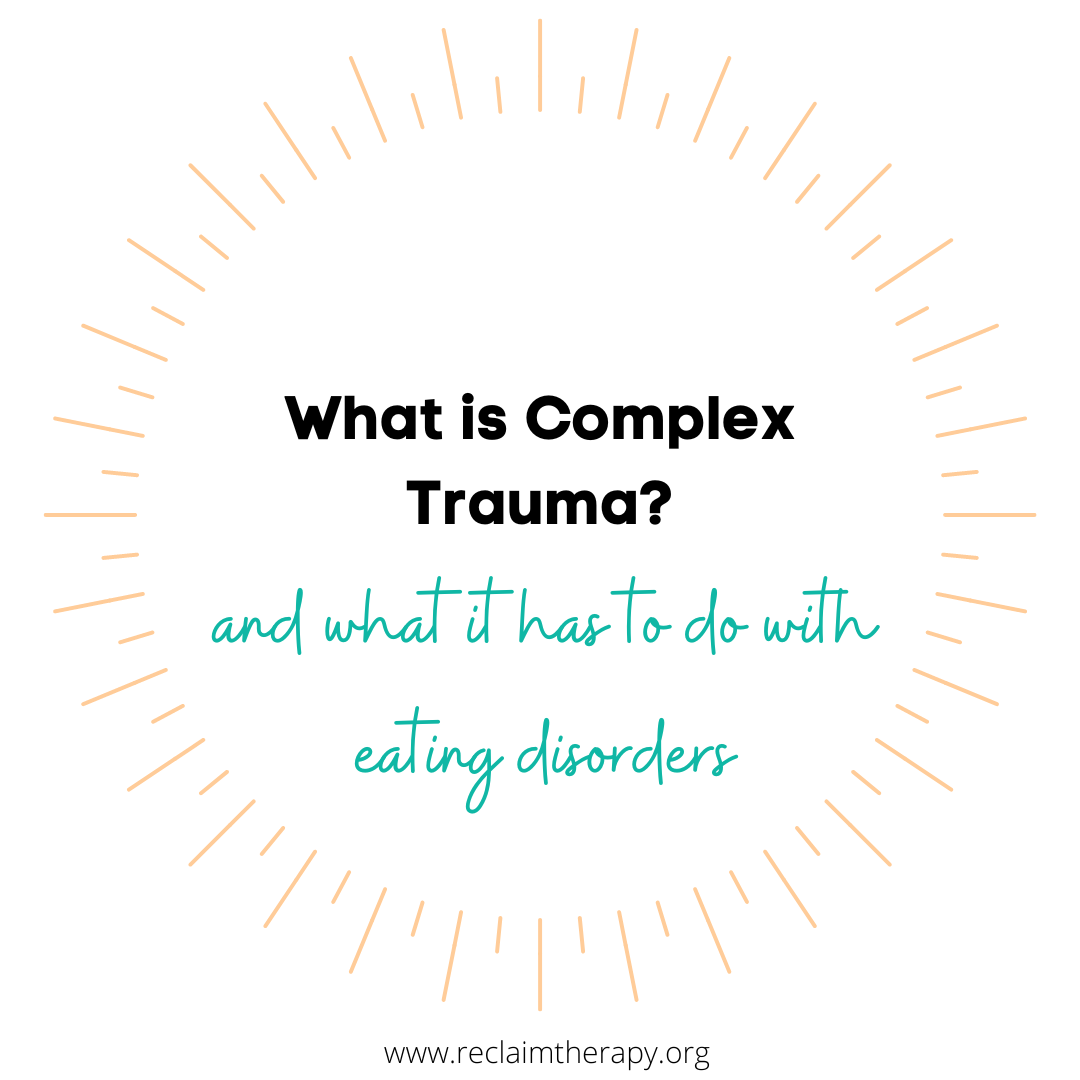
What is Complex Trauma? (CPTSD)
Two distinct components of CPTSD are:
Childhood attachment failure, even in the absence of other forms of mistreatment
Ongoing relational maltreatment like neglect, verbal, emotional, sexual or physical abuse.
Outside of childhood experiences, CPTSD is also seen as a result of imprisonment, sex trafficking, torture or being exposed to long term conflict.

Reclaim You- Dieting and Diet Culture's Origins
Season 1: Episode 1
Casey explains how diet culture has permeated our society and become a pervasive and harmful force that perpetuates negative and stigmatizing views of bodies outside of the thin ideal. For those who have experienced trauma or disordered eating, understanding and divesting from diet culture is a critical part of healing. Sarah and Casey explain why this is an important concept for anyone working to reclaim themselves after being inundated with diet culture's beliefs since a young age.
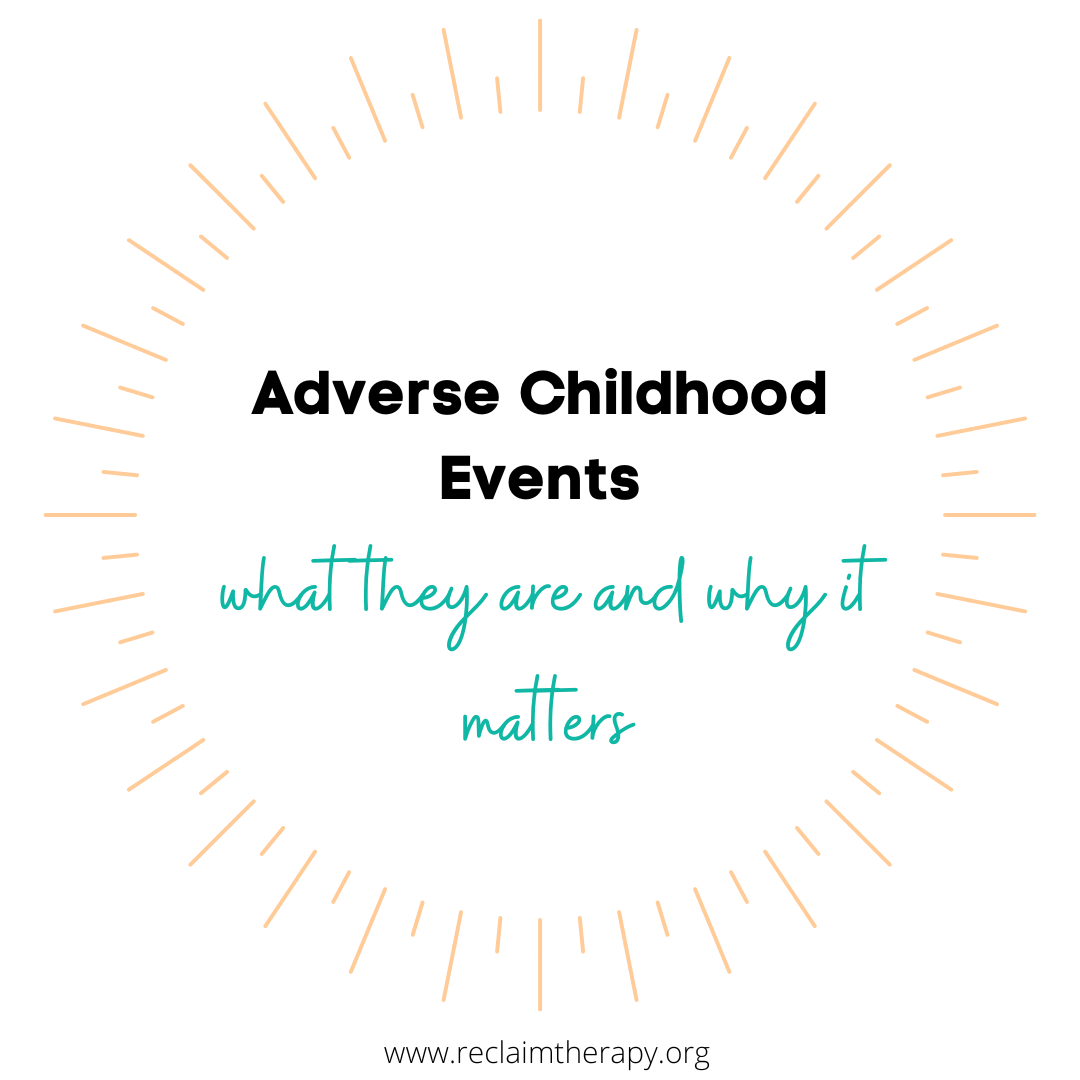
Adverse Childhood Events : Childhood Trauma Test Included
According to the CDC, close to 60% of adults in the United States have experienced at least one ACE, and nearly 1 in 6 adults has experienced 4 or more. The effects of ACEs are not limited to living through trauma in childhood, but often last into adulthood. Studies show that experiencing ACEs impacts a person’s physical and mental health, behavior, and social functioning.

Reclaim You- Meet Our Team!
Our first YouTube Video is live! Come and meet our team to learn more about why we do what we do and our hopes for the people that we work with.

Size Inclusivity: More Than a Number
Recently, I attended a trunk show for a well-known clothing brand that specializes in inclusive sizing.
I was excited to get to know the brand better and looked forward to supporting their efforts. I invited along a friend, and we headed into Philly for a session with our very own stylist…or so we thought.

Self Compassion Assessment
In this blog we talk about why self-compassion is so important in eating disorder recovery and recovery from trauma. We have included a self-compassion assessment developed by researcher Kristin Neff and a scoring guide to guage how self-compassionate you are. This isn’t meant for you to judge yourself, but instead an invitation into developing into the skill of self-compassion.

How to Navigate Relapse in Eating Disorder Recovery
At times you probably feel like things are going ok, that things are feeling a bit lighter, a less urgent, a little less impulsive to dive headfirst into eating disorder urges.
And other days it probably feels like you’re at the bottom of an epically steep mountain that is recovery.
Relapses in eating disorder recovery happen.
And, they can be opportunities to grow in your recovery process.

3 Ways to Move Away From Diet Culture According to An Eating Disorder Therapist in Pennsylvania
Diet culture is everywhere. When you start learning about diet culture, how far it reaches and permeates your everyday life, you’ll also start to recognize sneaky ways that it shows up in everyday conversations or in everyday activities.
Here are some common examples of how diet culture could be showing up in your everyday:

The 5 Most Important Aspects of Intuitive Eating according To a Binge Eating Coach
Hundreds of studies show that intuitive eating leads to:
Improved cholesterol levels
Better body image
Higher self-esteem
Improved metabolism
Decreased rates of disordered and emotional eating
Diminished stress levels
Increased satisfaction with life

An Eating Disorder Therapist's Tips for Maintaining Recovery from Binge Eating Disorder
Binge eating disorder impacts almost 3 million adults in the United States.
It is also the most common diagnosis among both women and men struggling with an eating disorder.
It’s estimated that almost 80% of people with binge eating disorder are also struggling with another mental health disorder- studies show that 65% of people suffering from binge eating disorder also present with anxiety, and can have up to six times more likelihood of being depressed. Many people struggling with binge eating disorder have experienced chronic life stress, including trauma (PTSD) or complex trauma (CPTSD).

Top Benefits of Receiving Eating Disorder therapy according to an Eating Disorder Therapist in Pennsylvania
If you’re experiencing some ambivalence when it comes to starting, or resuming, your recovery from your eating disorder, we want you know that we get it. And, you undeniably deserve a life that free from exhausting behaviors, shame and anxiety spirals and a disconnected experience of your body.
Starting therapy for your eating disorder is brave. And after working with countless clients who are in recovery, we want you to know what we believe to be the top benefits of receiving therapy for your eating disorder.

Signs of Eating Disorders in Teens
Eating disorders occur across the lifespan in all body types. And, we know that teens are at significant risk for developing eating disorders. Research has shown that the average onset of an eating disorder is between the ages of 13-18 and that eating disorders occur in close to 3% of teens in that age range.
There are many nuanced reasons for this including puberty, bullying, social media exposure, your family’s relationship with, and beliefs about, food and body, genetic predisposition and athletics.

Exercise in Eating Disorder Recovery
Moving our bodes is something the team at Reclaim talks about all the time in the therapy room.
How to understand and dig into intentions for movement.
When to take a break from movement.
How to reincorporate movement into life when there’s pockets of readiness.
And, how to navigate a new relationship with movement- one that isn’t punishing, rigid or compulsive.

How To Stop Emotionally Eating
Sarah, how do I stop emotionally eating?
this is a question we received from one of our blog readers recently.
You know my instinctual response?
Don’t.
Don’t stop emotionally eating.
Deep breath.Hang with me for a minute, so I can explain.

Therapy for Breakfast: Trust the Process
Quite a few years ago, I saw Food Network chef and host Alton Brown perform at a local food and wine festival. Fully expecting a high-brow demonstration of how to cook some complicated culinary cuisine, I was instead surprised, and a bit disappointed, to hear him wax poetic about the art of making the perfect omelet. An omelet? Dude…seriously? WTF?
Despite my irritation, I didn’t leave. Instead, I listened and watched as Alton revealed his proven process to achieve breakfast bliss:

